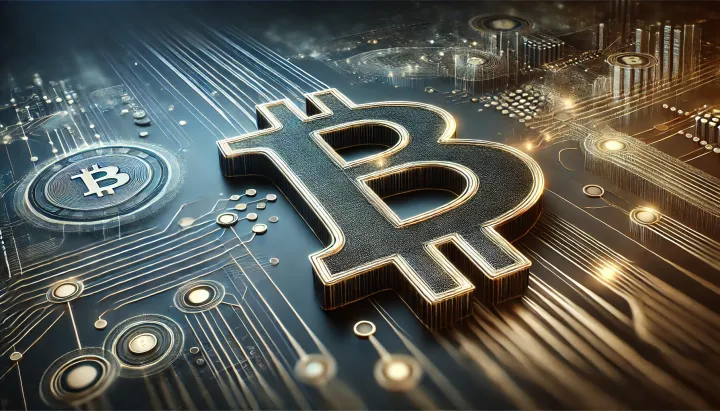Bitcoin Mining: A New Catalyst for the Coming Energy Transformation
The March 12, 2025, Bitcoin Fundamentals episode with Daniel Batten explores how Bitcoin mining repurposes waste energy—from landfill methane to stranded renewable power—to drive grid stability and economic efficiency.

- My 'briefing notes' summarize the content of podcast episodes; they do not reflect my own views.
- They contain (1) a summary of podcast content, (2) potential information gaps, and (3) some speculative views on wider implications.
- Pay attention to broadcast dates (I often summarize older episodes)
- Some episodes I summarize may be sponsored: don't trust, verify, if the information you are looking for is to be used for decision-making.
Summary
The March 12, 2025, Bitcoin Fundamentals episode with Daniel Batten explores how Bitcoin mining repurposes waste energy—from landfill methane to stranded renewable power—to drive grid stability and economic efficiency. The broadcast emphasizes the convergence of energy and technology sectors while debunking prevalent environmental myths. Its insights hold significant implications for policy, industry, and humanitarian initiatives.
Take-Home Messages
- Waste Energy Utilization: Bitcoin mining transforms harmful emissions and stranded energy into productive economic and environmental assets.
- Grid Stabilization: The technology’s rapid shutdown capability enhances grid flexibility during peak demand periods.
- Industry Convergence: Integration with renewable energy and AI data centers is reshaping traditional energy business models.
- Misinformation Counteraction: Data-driven communication is essential to dispel myths surrounding Bitcoin mining’s environmental impact.
- Societal Impact: Leveraging Bitcoin mining can drive financial inclusion and support humanitarian efforts in vulnerable regions.
Overview
Daniel Batten explains how repurposing waste energy—such as methane from landfills and excess renewable power—creates a dual benefit of environmental protection and economic opportunity. He details the technical and capital cost thresholds that make these projects competitive. Batten emphasizes that efficient energy utilization via Bitcoin mining can stabilize grids and enhance overall energy system resilience.
The broadcast outlines real-world examples, including projects in Finland, where mining exhaust heat supports district heating. Batten underscores that these initiatives not only optimize energy use but also boost renewable energy project profitability. He attributes this success to innovative engineering that transforms energy waste into value.
Batten also discusses the evolving convergence between Bitcoin mining, AI data centers, and traditional energy companies. He explains how cross-sector collaboration is fostering operational flexibility and economic diversification. The discussion points to a future where integrated energy solutions are crucial for sustainable infrastructure.
Throughout the episode, Batten addresses persistent misinformation regarding Bitcoin mining’s environmental footprint. He presents data and case studies to counter myths and reframe the technology as an essential tool for both energy efficiency and humanitarian progress.
Stakeholder Perspectives
- Energy Companies: Interested in monetizing stranded energy and stabilizing grids, though they face regulatory and infrastructural challenges.
- Renewable Energy Operators: View Bitcoin mining as a means to enhance profitability and expand renewable capacity.
- Policy Makers and Regulators: Seek clear, data-driven narratives to reconcile environmental benefits with public concerns and market stability.
- AI Data Center Operators: Consider flexible energy consumption through mining as a solution to grid integration challenges.
- Local Communities and Humanitarian Groups: Appreciate the potential for financial inclusion and energy access improvements amid economic instability.
Implications and Future Outlook
The integration of Bitcoin mining with renewable energy and AI data centers could revolutionize grid management and energy efficiency. Flexible mining operations enable rapid load adjustments that help prevent costly peak power generation, ensuring a more resilient energy infrastructure. This evolution may drive significant shifts in energy policy and investment priorities across multiple sectors.
Collaborative efforts between traditionally siloed industries are set to create new business models and revenue streams. As companies embrace energy repurposing strategies, the economic landscape may see more decentralized and diversified power generation methods. Such trends will likely prompt regulatory adaptations that support sustainable technological integration.
Improved public communication and data transparency are critical to overcoming misinformation. Strengthening these areas could enhance stakeholder trust and expedite the adoption of energy transformation practices. Ultimately, leveraging Bitcoin mining as a catalyst for sustainable energy offers broad societal benefits, from environmental protection to humanitarian support.
Information Gaps
- How can the conversion of landfill methane into Bitcoin mining energy be optimized for both environmental and economic benefits? This question targets the dual challenge of reducing harmful emissions while creating profitable energy solutions (see our landfill mining paper in the Journal of Cleaner Production). Addressing it could establish benchmarks for sustainable mining practices.
- What are the strategic implications of traditional energy companies integrating Bitcoin mining into their operations? This inquiry examines how merging energy production with mining reshapes business models and market dynamics. Its resolution may influence investment and regulatory policies.
- How does the rapid shutdown capability of Bitcoin mining units influence grid stability during peak demand periods? This question focuses on the operational impact of flexible energy consumption. Understanding it can inform grid management strategies and future infrastructure development.
- What communication strategies can effectively counteract misinformation about Bitcoin mining’s environmental impact? This issue is crucial for reshaping public perceptions and influencing policy debates. Clarifying these narratives can improve stakeholder trust and market acceptance.
- How can Bitcoin mining be leveraged to support humanitarian initiatives and enhance financial inclusion in regions facing economic instability? This question explores the broader societal benefits of mining beyond energy economics. Its answer could extend Bitcoin’s advantages to vulnerable populations and drive inclusive growth.
[Also see a 2024 publication I led on research needs in the mining sector].
Broader Implications for Bitcoin
Resilient Energy Infrastructure
Bitcoin mining’s ability to repurpose waste energy has the potential to transform traditional grid operations. By acting as a flexible load, mining operations can mitigate peak demand stresses and reduce reliance on expensive peaker plants. This dynamic can lead to more resilient, efficient, and sustainable energy infrastructures globally.
Technological Convergence
The convergence of Bitcoin mining with renewable energy and AI data centers is setting the stage for innovative business models. This cross-industry collaboration can drive the development of advanced, integrated systems that optimize energy use. Such convergence is likely to spur further technological advancements that benefit multiple sectors.
Societal Transformation
Leveraging Bitcoin mining for humanitarian initiatives can significantly enhance financial inclusion and economic resilience. By providing an alternative means to preserve wealth and facilitate cross-border transactions, mining supports vulnerable communities. This transformation may catalyze broader societal benefits, reducing dependency on traditional financial systems and fostering inclusive growth.



Comments ()